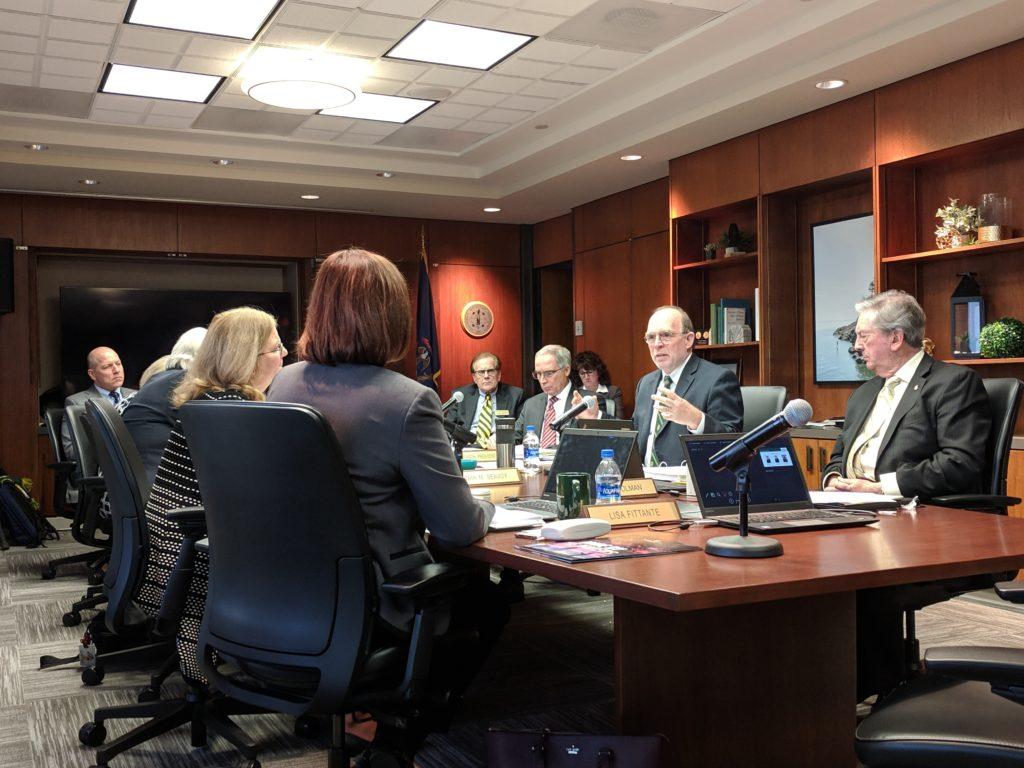A crucial deadline set by NMU’s Strategic Resource Allocation (SRA) Implementation Task Force (ITF) is rapidly approaching.
Academic transformation plans for programs in Quintile 4—recommend transformation with revised resources as appropriate—must be turned into Academic Affairs by May 1.
“The bias is to accept the majority of the recommendations,” Provost and Vice President for Academic Affairs Kerri Schuiling said. “This is a very faculty-driven process.”
The academic transformation proposals will be reviewed by President Fritz Erickson and the ITF in one-on-one meetings with the department head and/or associate dean overseeing the program. Support transformation plans are currently in the process of being submitted and reviewed.
Unit managers of programs in Quintile 3—recommend continuing with reduced resources—provided proposals in March of where and how they plan to reduce their budgets.
“This [the SRA process] definitely was not cut-driven,” Vice President for Finance and Administration Gavin Leach said.
The intent of the ITF is not to purely cut costs by cutting programs, but to combine or alter programs, Leach said.
Comprised of all vice presidents, the dean of students, the associate provost and the assistant vice president for budget and finance, the ITF composed the report after reviewing the recommendations suggested by the Academic and Support Task Forces in their reports, respectively. Of the 607 recommendations provided by the task forces, the ITF accepted 569. No student funded programs were recommended for transformation.
Erickson presented the first draft of the SRA ITF Report to the Board of Trustees (BOT) at its December meeting.
“We’ve made some pretty significant recommendations to help our students be as broadly and diversely educated as they possibly can,” Erickson said in December. “We believe empowering our students is a central aspect of the entire SRA process. The more we can empower our students to make the kind of educational decisions that they want, we think the quality of their education and the opportunities after graduation will continue to expand.”
According to its report, the ITF recommends five Academic Transformation Initiatives: “diversifying the academic experience; merge general university studies into two degrees; review all secondary education programs and determine demand/need/alignment; create two new colleges: Hon- ors College and the College of Graduate Studies and Re- search and restructure Northern’s academic organizational structure.”
To implement the first initiative, the ITF calls for requiring fewer credit hour requirements for majors and bachelor degrees and discontinuing a minor as a graduation requirement, though students will still have the option to choose one.
“By reorganizing, it’s much more efficient for students,” Schuiling said of the academic restructuring. “It’s much more understandable and the cam- pus as a whole understands it better.”
The report also suggests 10 Support Transformation Initiatives, including: “redefine the role of the Multicultural Education and Resource Center in supporting Northern’s university-wide diversity and inclusion effort; develop an enhanced advising and student-faculty mentoring model; restructure Northern’s international student services, recruitment and activities, as well as internationally related faculty activities.”
According to the ITF report, preliminary implementation plans will be in place by July 1 and presented to the BOT for approval at its July meeting.
All SRA reports are available at nmu.edu/sra.




























